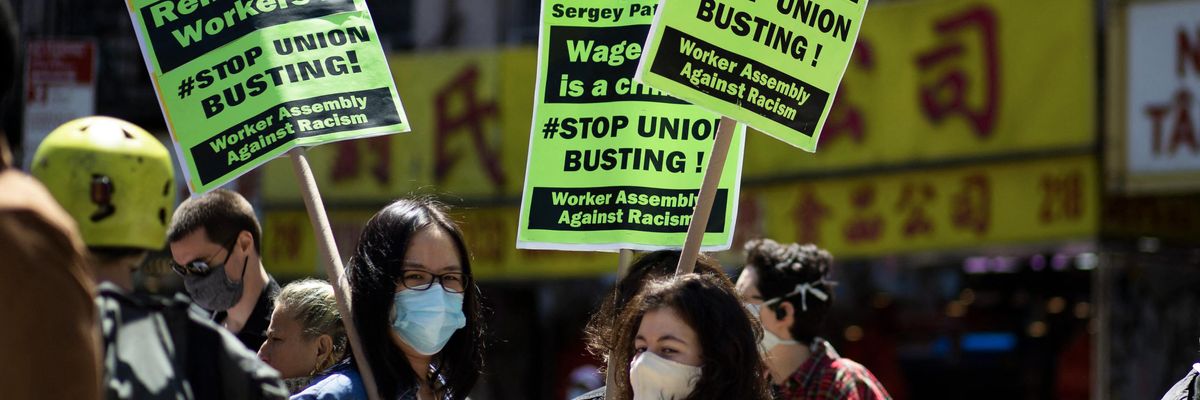Just six percent of private sector workers belong to a union in the U.S., but that doesn't mean we're short of united action on our economy.
For weeks now, employers and their lobbies have been unified in their lament that a scarcity of workers is the result of overly generous federal unemployment benefits. People would rather stay home and get rich off the public purse, they say, and the stories run everywhere with the help of the Chamber of Commerce.
There may be bosses who back better bridges and airports for their products, but they're not about to invest billions in childcare or elder support for their workers.
As a result, Republican governors in state after state are cutting off the federal aid. They'd rather turn away free money than relieve pressure on the poor.
Employers and their lobbies act as one all the time to keep workers desperate. Take the last few months--after a millions-strong majority voted a new administration into office in part on a pledge to raise wages, the opposition was so strong that a hike wasn't even tried. United opposition has kept the federal minimum wage stuck at $7.25 since 2009, and wages for tipped, teenage, and disabled workers are even lower.
Now the Biden administration's facing united resistance in Congress to passage of the American Jobs Plan. There may be bosses who back better bridges and airports for their products, but they're not about to invest billions in childcare or elder support for their workers. And if you think the anti-affordable child care lobby's strong, you haven't met the mob opposing universal health care, even after a deadly pandemic.
Are workers staying home because they can? It's possible. But three separate studies of the CARES Act (which was twice as generous) say the impact on employment was negligible.
Far more likely, it's lack of child care and public transport and affordable healthcare and continuing fear of Covid that is keeping people home when humanly possible. That, more than laziness, certainly seems to explain why tens of thousands of women have exited the workforce.
Besides, if an extra $300 a week enables some to make ends meet without that stinking $7/hr job at the Dollar Store. Is that so bad?
Even with the bonus, which is due to end in a few more months, workers aren't getting rich. But their employers are, as long as they keep wages down, benefits skimpy, and workers desperate. One for all and all for one--for them, it works. Just don't let anyone pass that pro-union PRO Act.

